Her Story, the groundbreaking new web series by and about trans women, explores the dating lives of trans and queer women as they navigate the intersections of desire and identity. Jen Richards, who stars as Violet, and co-wrote and co-produced the show, chatted with SheWired about the biggest challenges she faced in creating the show, her favorite moments, and the future of Her Story.SheWired: You have this background with We Happy Trans and The Trans 100. What drew you to the web series as a medium? Was there something you felt you could accomplish in a web series that you couldn’t in those other mediums?
Jen Richards: Absolutely. More in retrospect. As I look back on it and reflect on it, there’s the recognition that a narrative approach allows you to get at issues, sometimes in kind of an oblique way, because you’re coming around it rather than direct rhetoric or policy.
On the other hand, it’s almost a more direct way, because you’re really speaking right to people’s hearts. They’re getting to know the characters, and caring about them. I’ve had some of the audience members say that they forget that Paige and Violet are even trans. They’re getting involved with their stories. They just want them to have love, and they want these other people to accept them for who they are. So, in doing this we kind of tricked the audience into caring about trans issues. The audience wants Allie and Violet to work out. They want James to accept Paige.
Practically, it wasn’t my intention to go do screenwriting for those reasons. I didn’t realize the full importance of what we were doing at the time. I really just thought this was going to be a little thing that I would make in Chicago and not a lot of people would see. But I could’ve never anticipated that it would be like this.
The response has been overwhelmingly positive. At the same time, when you’re making work about a marginalized community, there tends to be this pressure to make that work representative of that entire community. How did you cope with that pressure while you were writing, and now that you’re getting feedback about it?
I had to put that off in my mind. If I tried to make it so everyone was represented, then it wouldn’t have been a true story. It would’ve been contrived. It would’ve been token, I think, frankly. All I really wanted to do was tell these two stories, Paige’s story and Violet’s story. It just so happens that the life experiences of myself and Angelica Ross (who plays Paige) covered a fair amount of ground, so a lot of trans people were able to identify with the characters. But I don’t really like the idea of writing diversity. I think you just have to live diversely, and write authentically. You have to be an honest storyteller, and maintain fidelity to your characters and your story.
That being said, the feedback has been overwhelmingly positive, but I have had some people writing to me, sometimes very innocently like, "Hey, we’d love to see non-binary people represented." Sometimes it’s negatively, saying, "Oh, you only care about trans women who adhere to cisnormative beauty standards," or something like that. And those critiques, on one hand, I’m like, well you know, this is a piece of art and no piece of art should be burdened with that kind of responsibility to represent everyone. If you did that, it’d be clinical. It wouldn’t be a compelling story.
On the other hand, there are a lot more experiences in my life that I would like to represent, but we only had 53 minutes of story time. For instance, my last romantic partner and my current crush are non-binary. That’s something that I do see eventually incorporating into Her Story. Another good example is trans men. They’re a big part of my world. They just didn’t fit the start of this story, but we have plans for a full season. There will be a lot more types of identities.
While you were collaborating with Laura Zak on screenwriting, were there any challenges that came up that you didn’t expect?
Kind of the opposite. It went surprisingly smoothly. I’ve never written with someone else before, but with Laura and I, it felt like two paths of the same brain. We would fairly regularly text each other the same idea at exactly the same time. Likewise about filming. I was concerned, because while we did have some trans people on set, we were still by far the minority, and we had some straight white cis men. So I was a little bit fearful of what that would be like, but again, Kate Fisher, our producer, just set the tone so beautifully.
For me, the truly difficult part came during editing. Our editor, Bryan Darling, and I had some really serious fights. There were a few scenes and many lines that I absolutely felt should not be cut. I thought that they were just too important, and [they were lines] I wanted particularly my trans audience to hear, and that I was really wedded to. And Bryan didn’t have those same kinds of loyalties. His loyalty was to the story, and he had a very objective outside perspective. He was looking at it from the audience’s perspective, and his concern was that he wanted to make it as smooth as possible, as concentrated on story as possible, so that we could have the widest possible audience. I think I lost about every single fight over editing (laughs), and it’s only been over time seeing the audience’s reaction to it, that… he was right. He was absolutely right. The way that he edited really does make the story better. Ultimately, the thing that he really achieved is that he left everyone wanting more.
What were some of the lines that you really wish had made it in?
There are a couple that stand out. One is that there’s a scene where Violet is talking to Paige after her first meeting with Allie. Paige is cautioning [Violet] not to reveal too much about herself, and she starts talking about disclosure. She has a monologue about how she used to disclose everything about her past prior to even getting to the first date, and all that did was make her into someone that guys were only going to sleep with. They were never going to bring her home to their families, or to meet their friends. Because she was black and trans, she was just another check on the bucket. And then she makes a point like, “Disclosure goes both ways. They don’t have to disclose to us that they’re assholes.” And I loved that line. She follows that up with “We’re a threat to their egos, they’re a threat to our lives.” That’s something I think needs to be out there in the conversation. There’s always this sense that the burden of disclosure is on trans women, but you know, men don’t disclose all of their issues upfront. And what’s the real threat? When a trans woman discloses to a guy, his big worry is that he’s going to seem less masculine to other men or something like that. It’s really about his ego. But a woman disclosing, it’s really about her life. I’ve had many girlfriends put in very dangerous situations when men find out they’re trans. So I don’t think it’s this clear thing of like, every trans woman has the responsibility to immediately disclose a very personal aspect of her experience in life to every boy she meets.
That’s something I really wanted politically to get in, but Bryan’s opinion, and Sydney [Freeland], our director, was that the monologue was too long in that moment. We didn’t want to make the stakes too high, so when Paige sees James and gives a little wave, she’s not already thinking about all those heavy things. We’re not telling people how to think. We’re just kind of letting them watch it unfold. Then, when they have that conversation about disclosure, it lands heavier.
In the scene where Paige does disclose to James, he comes back with his own disclosure about his past…
I personally think it’s one of the most important lines of the entire series. Because up until now, until we see this moment in Her Story, we’ve been getting one narrative around disclosure on screen. And that’s: an attractive trans woman meets a man, and when he finds out that she’s trans, he responds with either laughter and mockery, or with violence. That’s the only model that we have to respond to a trans woman disclosing. This awful secret is discovered, and if it is violence, it’s considered deserved. If it is mockery, it’s considered deserved. The audience is siding with the guy who discovers someone is trans. It was really important to me to show an alternative to that, so that we can model that. Other people can look to that and say, "Oh, yeah, James’ response is actually much more accurate. He also has a disclosure, and he’s trying to understand when the right time would’ve been to tell her that."
Is there something you always wish people would ask you about, but they never do?
The one thing I’d really like people to see more of in Her Story is the friendship between Violet and Paige. We often see trans women isolated. I really think Tangerine is the first time where we’ve seen two trans women as friends, and what that friendship can look like. That’s the most definitive aspect of my life, my relationships with trans people. It’s what allows me to continue working, and what keeps me engaged, and affirmed, and loved. They’re the ones who hold me through really dark times, and who have kept me alive through hard times, and who are my biggest cheerleaders. Those friendships are really important, and I’m really proud that we got to show a little bit of that on Her Story. We show Violet and Paige pushing each other, we see them joking with each other, we see them loving and rooting for each other, and I think that’s huge. I’d like people to notice that. Maybe it’s good that they don’t notice that. Maybe it’s just become kind of unconscious for them, and that’s wonderful.
But I think for trans women like myself who don’t get to see that on screen, that’s important. The fact that it’s an interracial friendship where race is actually talked about, and joked about, I think that’s important too, and I hope that’s something people are noticing.
In terms of talking about race, there’s that scene where Paige sort of checks Violet on whose story this is…
I still remember the day that I came up with that scene, and I was giggling to myself so hard. I was just cracking myself up. And I was worried it was a step too far with that, "It’s not fair, you’re my Mo’Nique and my Morgan Freeman." So I texted it to Angelica and she thought it was hysterical. I thought, okay great, we can do this. And it’s an important line. It’s the recognition that historically black people have occupied those two roles—it’s either the Wise Mentor or the Sassy Best Friend. And in a way, Paige is both of those things for Violet. She is someone who is further down the road, and can give important life advice to Violet, and she is her best friend. So it is easy to sort of relegate her to those tropes, but by acknowledging that out loud by having Violet make a joke about it self consciously, and having Paige throw it right back in her face with, "What story do you think you’re in?" Like, "I’m the main character. You’re just the white sidekick." I think that’s true. They’re both the main characters in their own story, and they’re both supporting each other’s stories. That’s a really important dynamic.
Is there anything you can tell us about the next season?
Laura and I are almost done with the treatment for a full 30-minute 10-episode season. There’s much much more material to cover. I literally start physically shaking when I think about all the stories we have coming up. I’m so excited! I will say that it’s a little bit dark. We go to some intense places. I think audiences will be really excited about the kinds of characters we introduce, and some of the big issues that we take on.
I can tell you there are going to be some problems [with Paige and Violet moving in together], and it won’t last particularly long. Violet is going to have a rough go of it. She has a long way to go before she finds herself.
Do you think having Her Story on a major network or somewhere like Netflix or Amazon is crucial for the next phase of the show, and for trans representation?
Absolutely. That’s my great dream. We’re doing really well for an independently produced web series on YouTube, and I’m very proud of how many people we’re reaching, but given the nature of Netflix, Amazon, HBO, Showtime, or Lifetime, it’s going to reach an audience a hundred times greater than we could ever reach on our own.
If we were to get to that point, we’d also have a much broader palette of characters to work with. I think we could do a lot if Her Story gets picked up. Going from having two secondary trans characters on an Amazon show, and one trans character on two different Netflix shows each, we could go to having eight trans characters on a show that’s really about trans communities, and takes an intersectional approach to the issues. More than anything, I think [being intersectional] is what Her Story is poised to do better than any other show that’s out there right now, by having a Navajo director, and a black trans woman lead, and having queer and trans writers.
Anything else you’d like to add?
I’m really grateful for all the people who have been watching, sharing, and commenting. The kinds of e-mails we’ve received have just been so extraordinary. Kate, our producer, pushed for the show to go up for free—and I was nervous about that, because there’s no way to know if you’ll get that money back. At one time she said, "You know, if this changes one person’s life, it’ll all have been worth it." And we’ve already gotten proof that it’s changed many people’s lives. If nothing else ever comes of this, if this is it for Her Story, we’ve already had the kind of impact that we hoped for.


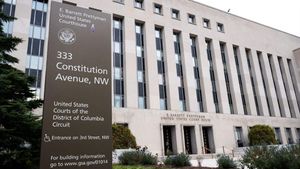



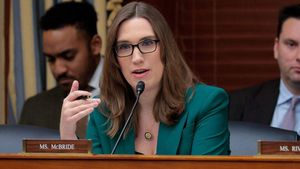
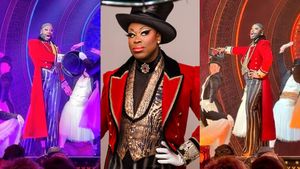



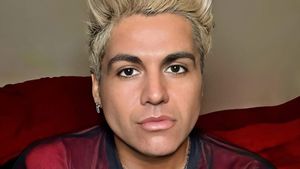
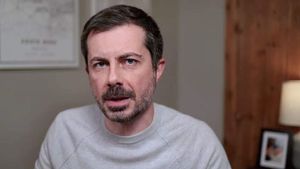
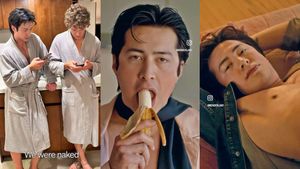

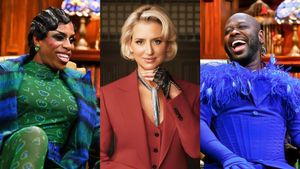











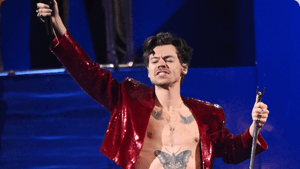



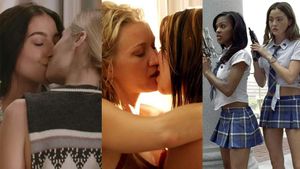



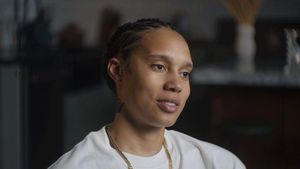






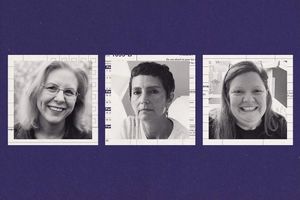



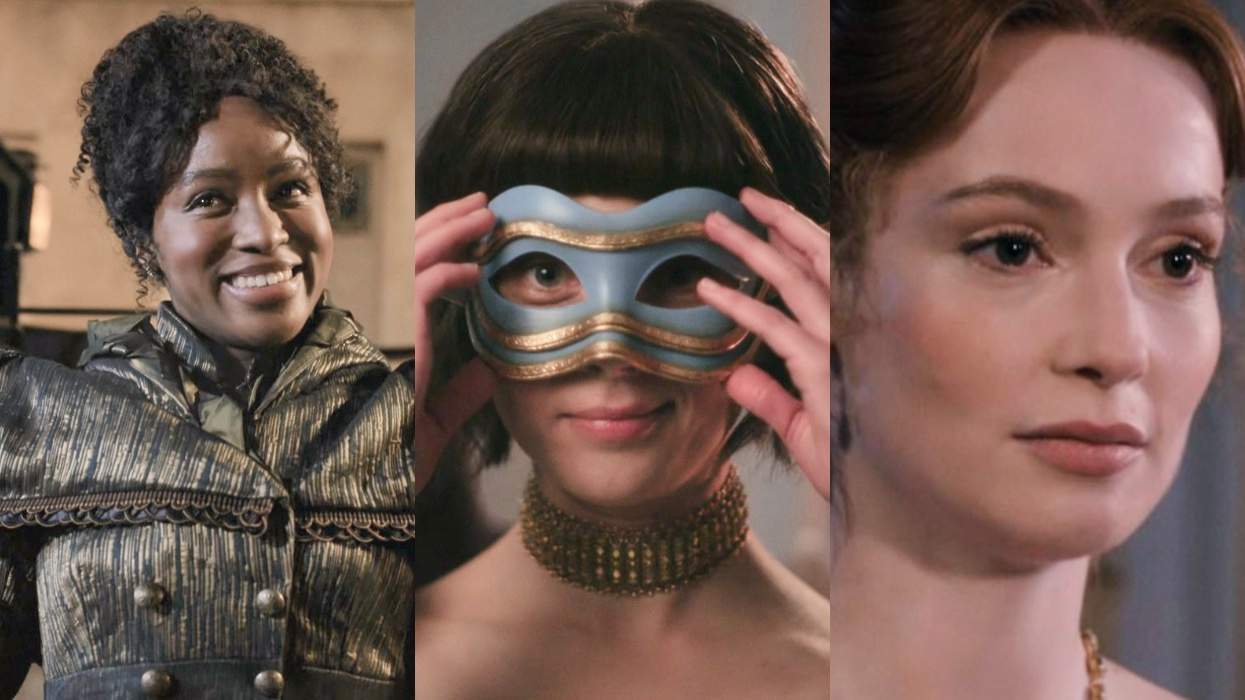
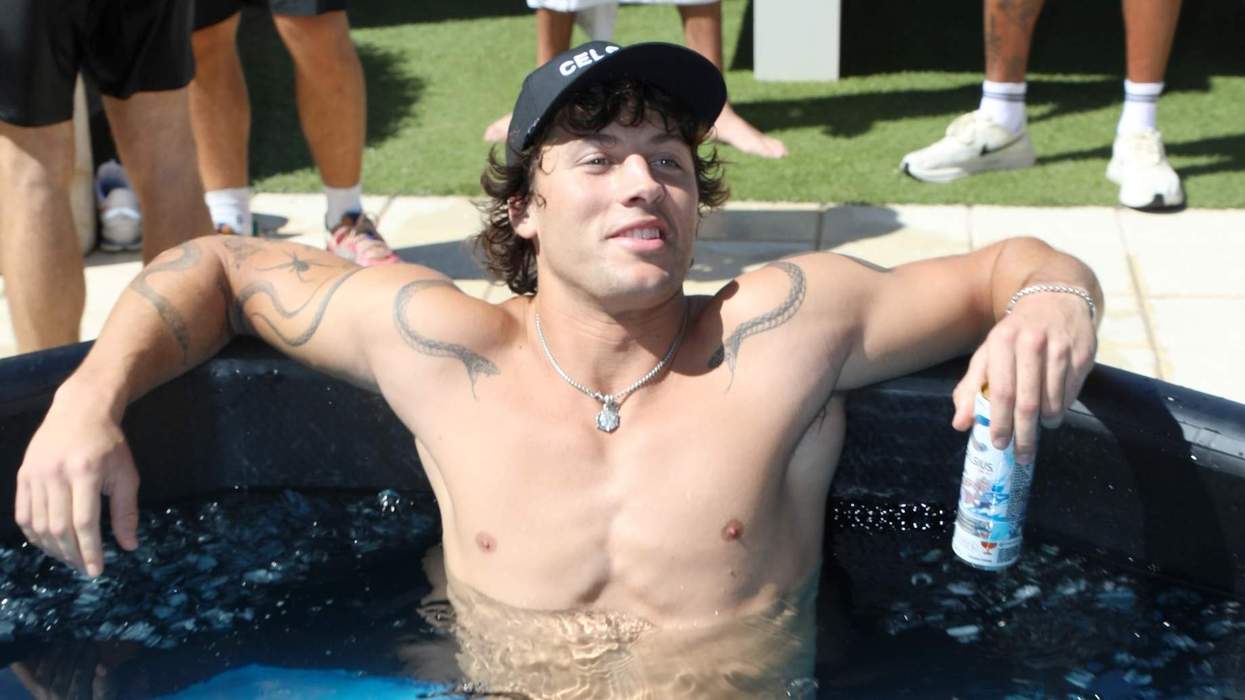
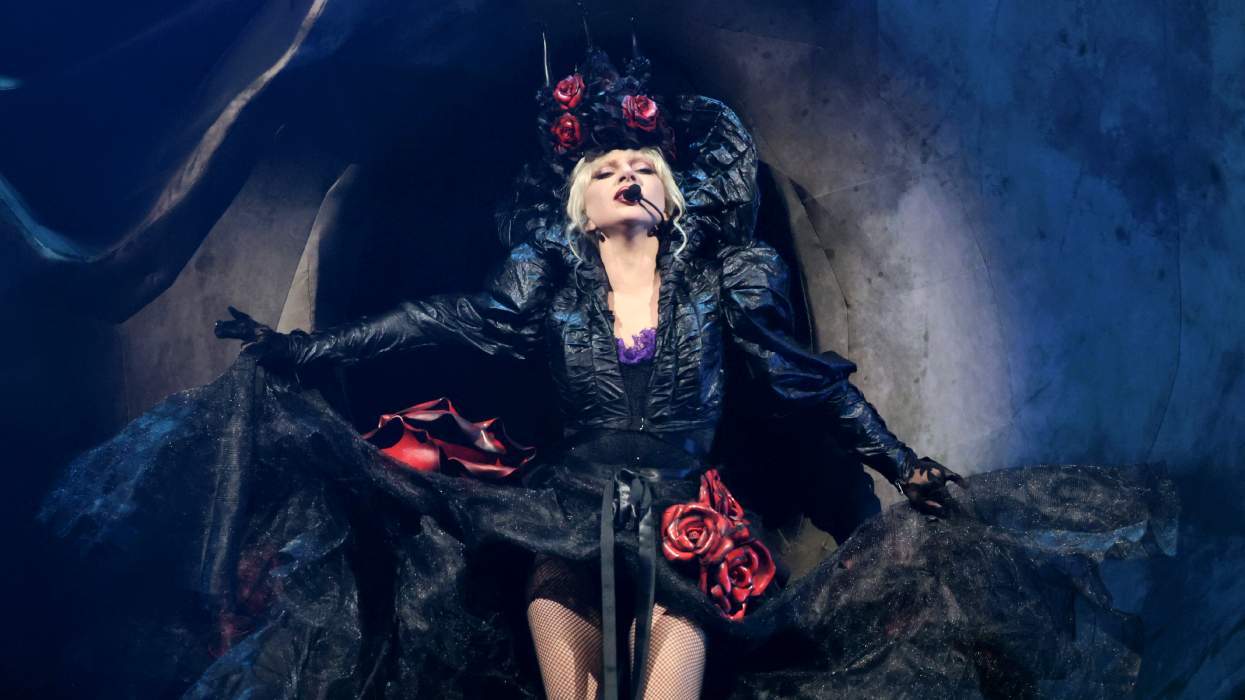





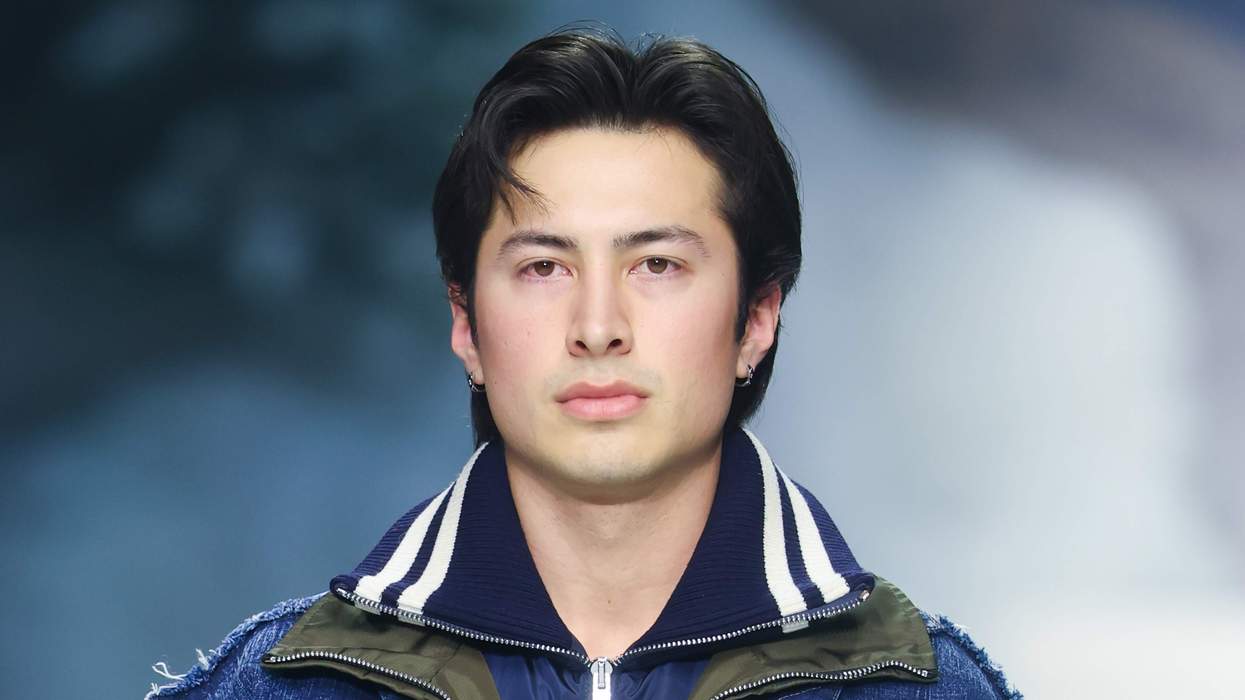































 Cindy Ord/Getty Images
Cindy Ord/Getty Images























